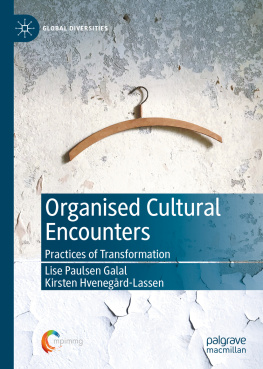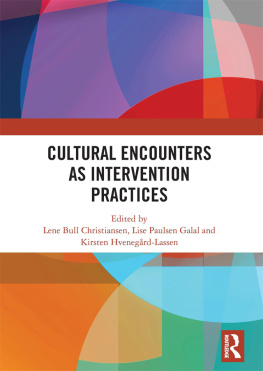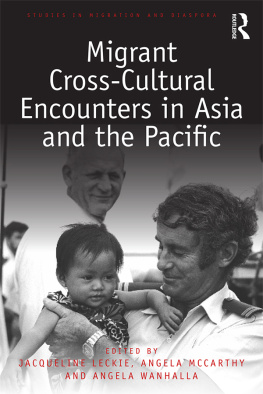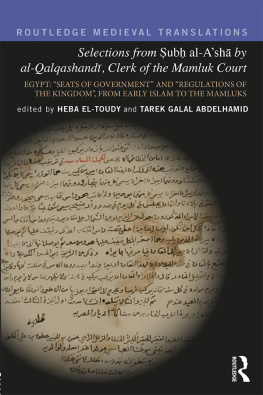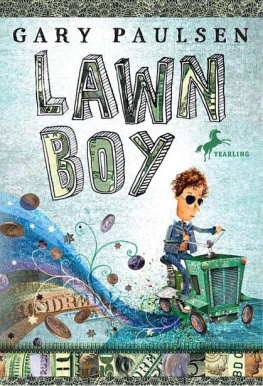Lise Paulsen Galal - Organised Cultural Encounters: Practices of Transformation
Here you can read online Lise Paulsen Galal - Organised Cultural Encounters: Practices of Transformation full text of the book (entire story) in english for free. Download pdf and epub, get meaning, cover and reviews about this ebook. year: 2020, publisher: Palgrave Macmillan, genre: Religion. Description of the work, (preface) as well as reviews are available. Best literature library LitArk.com created for fans of good reading and offers a wide selection of genres:
Romance novel
Science fiction
Adventure
Detective
Science
History
Home and family
Prose
Art
Politics
Computer
Non-fiction
Religion
Business
Children
Humor
Choose a favorite category and find really read worthwhile books. Enjoy immersion in the world of imagination, feel the emotions of the characters or learn something new for yourself, make an fascinating discovery.
- Book:Organised Cultural Encounters: Practices of Transformation
- Author:
- Publisher:Palgrave Macmillan
- Genre:
- Year:2020
- Rating:3 / 5
- Favourites:Add to favourites
- Your mark:
- 60
- 1
- 2
- 3
- 4
- 5
Organised Cultural Encounters: Practices of Transformation: summary, description and annotation
We offer to read an annotation, description, summary or preface (depends on what the author of the book "Organised Cultural Encounters: Practices of Transformation" wrote himself). If you haven't found the necessary information about the book — write in the comments, we will try to find it.
Organised Cultural Encounters: Practices of Transformation — read online for free the complete book (whole text) full work
Below is the text of the book, divided by pages. System saving the place of the last page read, allows you to conveniently read the book "Organised Cultural Encounters: Practices of Transformation" online for free, without having to search again every time where you left off. Put a bookmark, and you can go to the page where you finished reading at any time.
Font size:
Interval:
Bookmark:
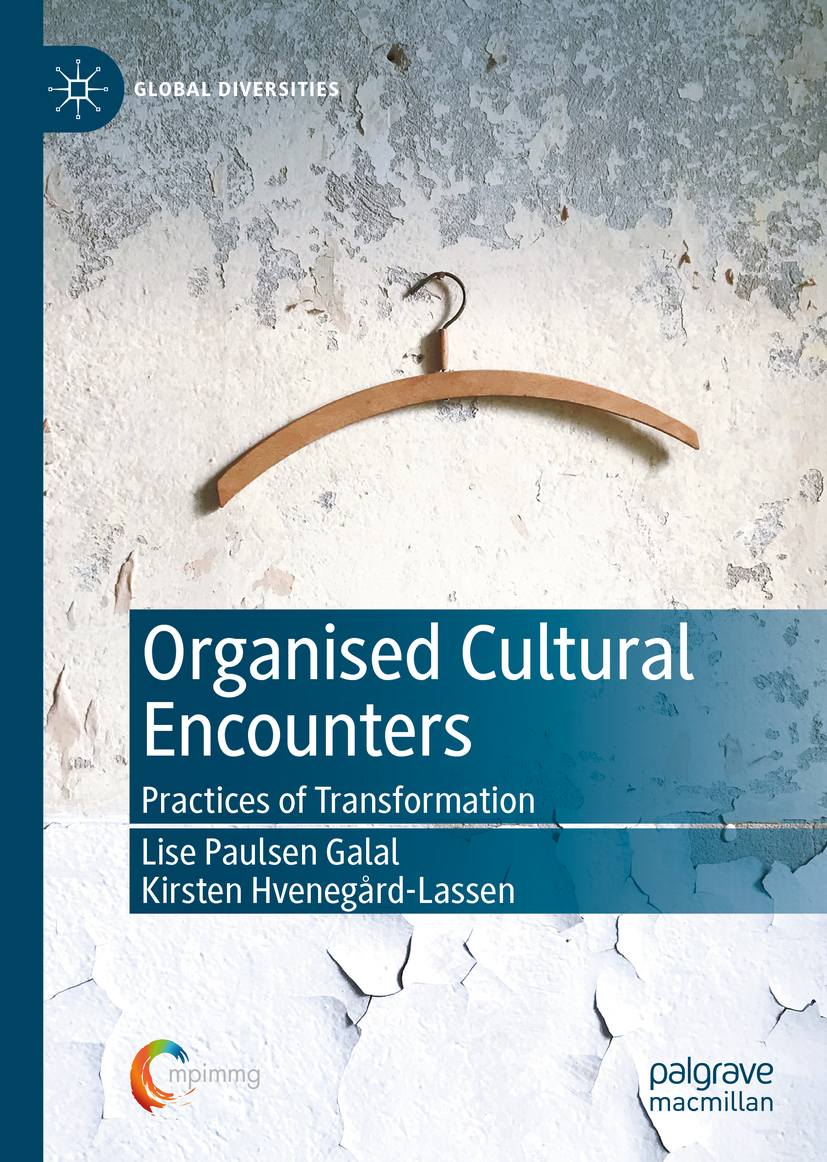
Over the past decade, the concept of 'diversity' has gained a leading place in academic thought, business practice, politics and public policy across the world. However, local conditions and meanings of 'diversity' are highly dissimilar and changing. For these reasons, deeper and more comparative understandings of pertinent concepts, processes and phenomena are in great demand. This series will examine multiple forms and configurations of diversity, how these have been conceived, imagined, and represented, how they have been or could be regulated or governed, how different processes of inter-ethnic or inter-religious encounter unfold, how conflicts arise and how political solutions are negotiated and practiced, and what truly convivial societies might actually look like. By comparatively examining a range of conditions, processes and cases revealing the contemporary meanings and dynamics of 'diversity', this series will be a key resource for students and professional social scientists. It will represent a landmark within a field that has become, and will continue to be, one of the foremost topics of global concern throughout the twenty-first century. Reflecting this multi-disciplinary field, the series will include works from Anthropology, Political Science, Sociology, Law, Geography and Religious Studies. While drawing on an international field of scholarship, the series will include works by current and former staff members, by visiting fellows and from events of the Max Planck Institute for the Study of Religious and Ethnic Diversity. Relevant manuscripts submitted from outside the Max Planck Institute network will also be considered.
More information about this series at http://www.palgrave.com/gp/series/15009

Cover illustration: Michael Jones / EyeEm
This Palgrave Macmillan imprint is published by the registered company Springer Nature Switzerland AG.
The registered company address is: Gewerbestrasse 11, 6330 Cham, Switzerland
The ideas and perspectives developed inOrganised Cultural Encounters: Practices of Transformationare the result of insights harvested from a collaborative research project on organised cultural encounter s. The fieldwork that forms the basis for the analyses in this book was conducted in different domains: interfaith dialogue work (fieldwork by Lise Paulsen Galal); a youth diversity project called the Cultural Encounters Ambassadors (fieldwork by Helle Bach Riis); training activities related to diversity management (fieldwork by Kirsten Hvenegrd-Lassen); volunteer tourism (fieldwork by Lene Bull Christiansen); and a community dance project (fieldwork by Rasmus Prstmann Hansen).
Besides the two authors, the other project members have contributed to this book with research data and through discussions during the project period. Lene has also been involved in the structuring of the volume through her participation in the writing of the book proposal. Thanks to all of them for inspiring and generous collaboration.
Even though the performance incentives of the neoliberal university are heavily individualised, research in our view is always a dialogical accomplishment, and in that sense the collaborative nature of our research project is not unusual. What is perhaps less common is that this book refers to and analyses fieldnotes and interviews produced by all five research participants. This means that, in addition to analysing our own and each others material, wethe authors of this bookhave also had access not only to the publications of the other participants but also to their raw material. This, of course, implies that we as authors need to adhere to the same ethical responsibilities towards the research participants as the fieldworkers have doneboth in terms of formal ethics and ethics in practice (Guillemin & Gillam, 2004).
It also means that it is necessary to consider the ethics associated with analysingand writing aboutdata material not produced by oneself, which also implies laying some kind of claim to that material. In the book, we have adopted a politics of citation that aims to acknowledge the contributions of all the participants in the research project. However, the analyses and their merits and flaws are our responsibility. Where possible, we have supported the analysis of our co-researchers data by drawing on their writings on their own case material, but still with our analytical focus in mind.
It is, however, not a straightforward venture to analyse other peoples fieldnotes and interviews. Reflecting upon the fieldwork related to his doctoral research into urban politics and responses to asylum, Jonathan Darling underlines:
The need to consider more carefully the ways in which fieldwork produces more than simply data, narratives or notes to be analysed and represented. Fieldwork produces sensibilities and dispositions, it alters individuals and may orientate them differently towards others. [] sensitivity to context is never a final or full accomplishment. Context and positionality are always shifting beneath our feet as research develops, []. As such, fieldwork demands the continual acknowledgement that the accounts we produce are incomplete reflections of a here and now never to be repeated. (Darling, 2014, p. 211).
Font size:
Interval:
Bookmark:
Similar books «Organised Cultural Encounters: Practices of Transformation»
Look at similar books to Organised Cultural Encounters: Practices of Transformation. We have selected literature similar in name and meaning in the hope of providing readers with more options to find new, interesting, not yet read works.
Discussion, reviews of the book Organised Cultural Encounters: Practices of Transformation and just readers' own opinions. Leave your comments, write what you think about the work, its meaning or the main characters. Specify what exactly you liked and what you didn't like, and why you think so.

